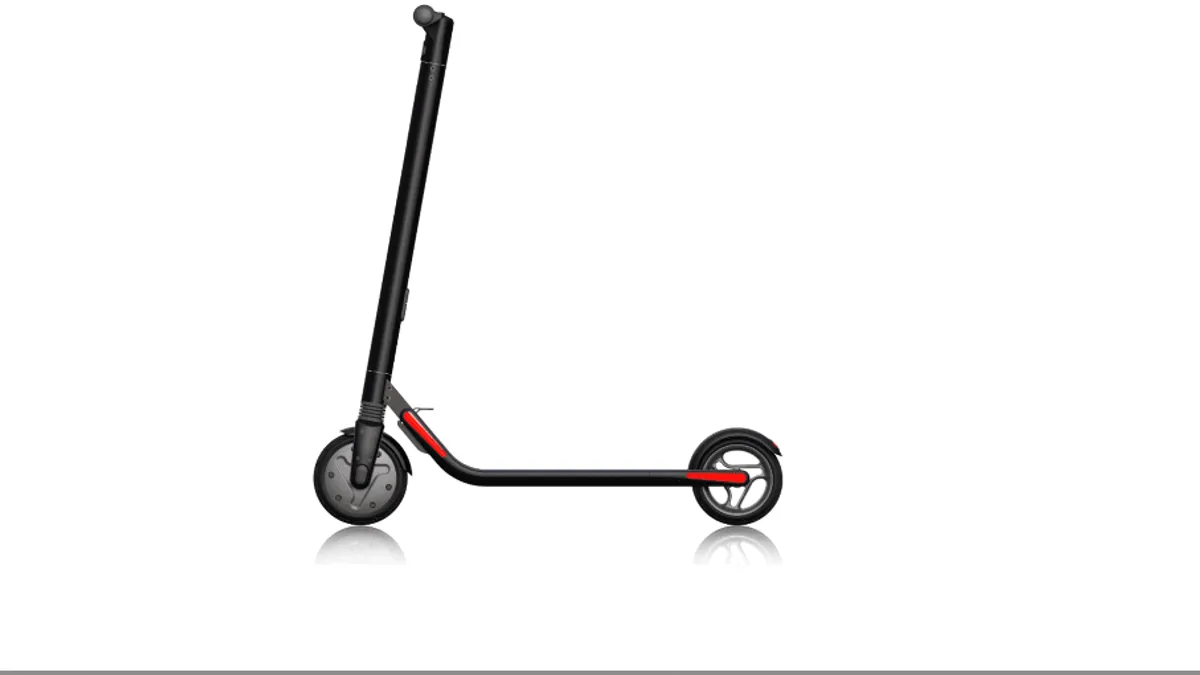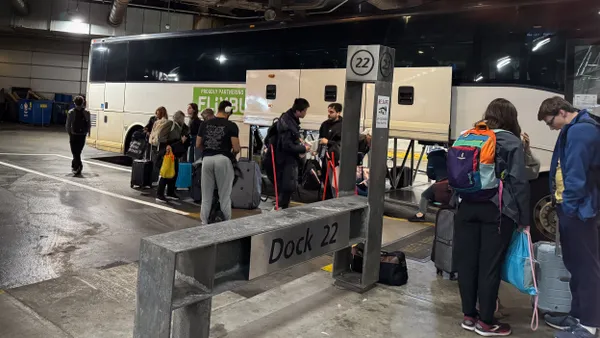UPDATED, May 10, 2018: Nashville, TN officials sent Bird a cease and desist letter on Tuesday — just one day after it launched its service in the city — ordering the company to keep its scooters off city rights of way. The letter threatens that if Bird does not remove its scooters within fifteen days, the Metropolitan Government will "avail itself of all available legal remedies to prevent the obstruction of its public rights of way, including injunctive relief."
The letter also suggests that the city is currently developing regulations to allow for the permit of dockless scooters or bikes, which follows the actions of other cities that have cracked down on companies before issuing licenses, such as Austin, TX.
Dive Brief:
- Dockless scooter-sharing service Bird launched a fleet of 100 scooters across Nashville, TN on Monday, according to the Nashville Business Journal and others.
- Bird is the first dockless mobility service to hit Nashville. The city's other on-demand transportation services include Uber, Lyft and Nashville B-Cycle, a local docked bike-sharing service.
- Bird is now available in 10 markets, including Los Angeles, Atlanta, San Francisco and Washington, DC.
Dive Insight:
Bird's entrance into Nashville is timely, as city voters recently rejected the city's $5.2 billion transit plan in a referendum. The plan was rejected in part due to it imposing higher taxes to pay for light rail and bus rapid transit, and while opponents and supporters alike have promised to develop alternative transit plans, the city would likely welcome other mobility solutions.
By adding a dockless scooter-sharing service, Nashville is increasing its presence as a forward-thinking market, which can be especially valuable as the city competes for the coveted Amazon HQ2 bid. The city must be strategic, however, to not fall victim to the "clutter conundrum" that has plagued other cities with dockless services.
If Bird is successful in Nashville, it could attract other dockless bike or scooter services to enter the city, which could cause an influx of vehicle "littering." Cities such as Austin, TX and San Francisco — which also happen to be markets where Bird is present — have experienced this problem, resulting in vehicle confiscation and other forms of enforcement of the dockless companies.
It is in the best interest of transportation leaders in Nashville to keep a close eye on Bird and quickly take action if citizens begin to demonstrate improper use of the service. User education is also a vital tool to ensuring this week's roll-out is successful and users understand the most safe, efficient ways to use the scooters.












